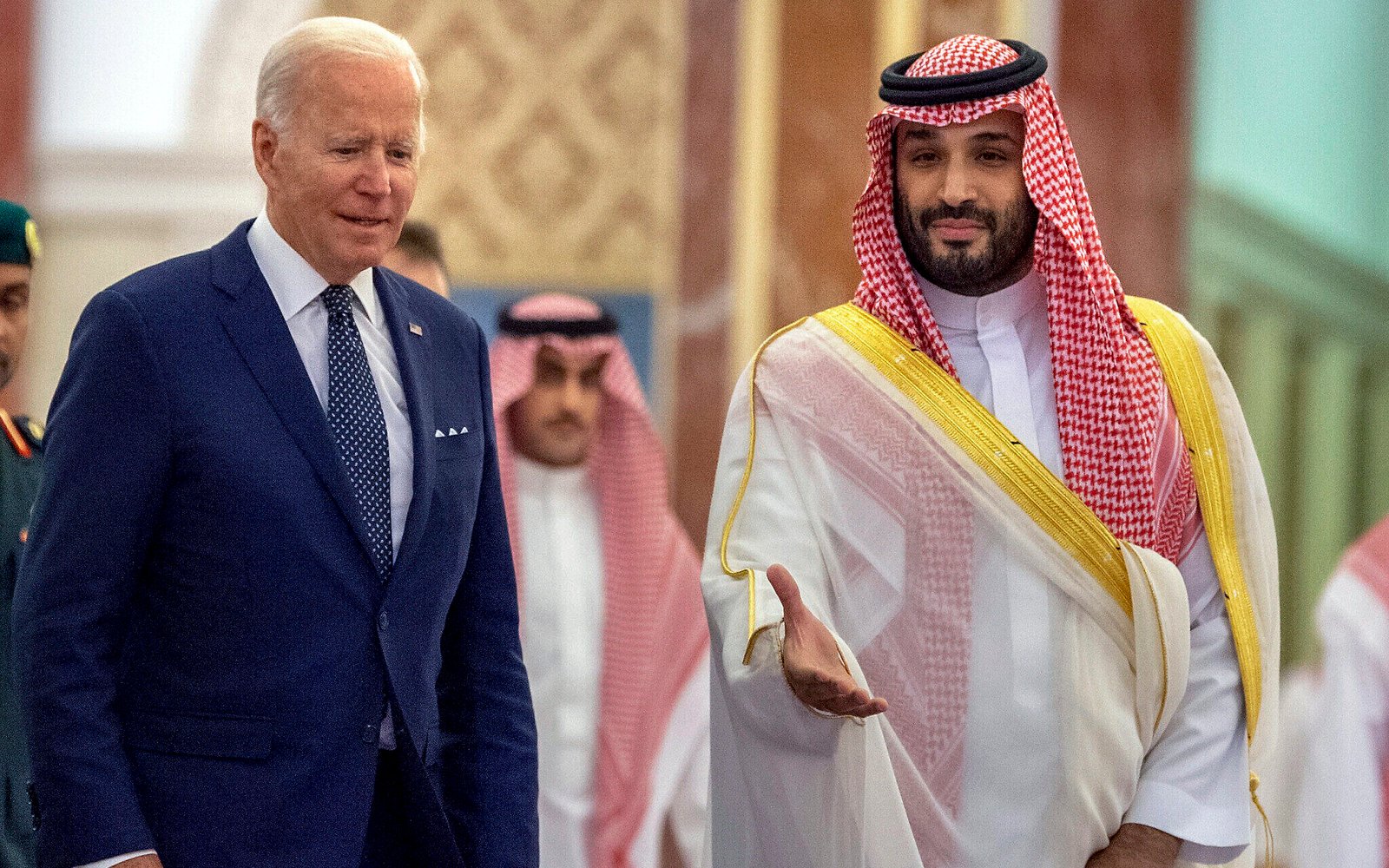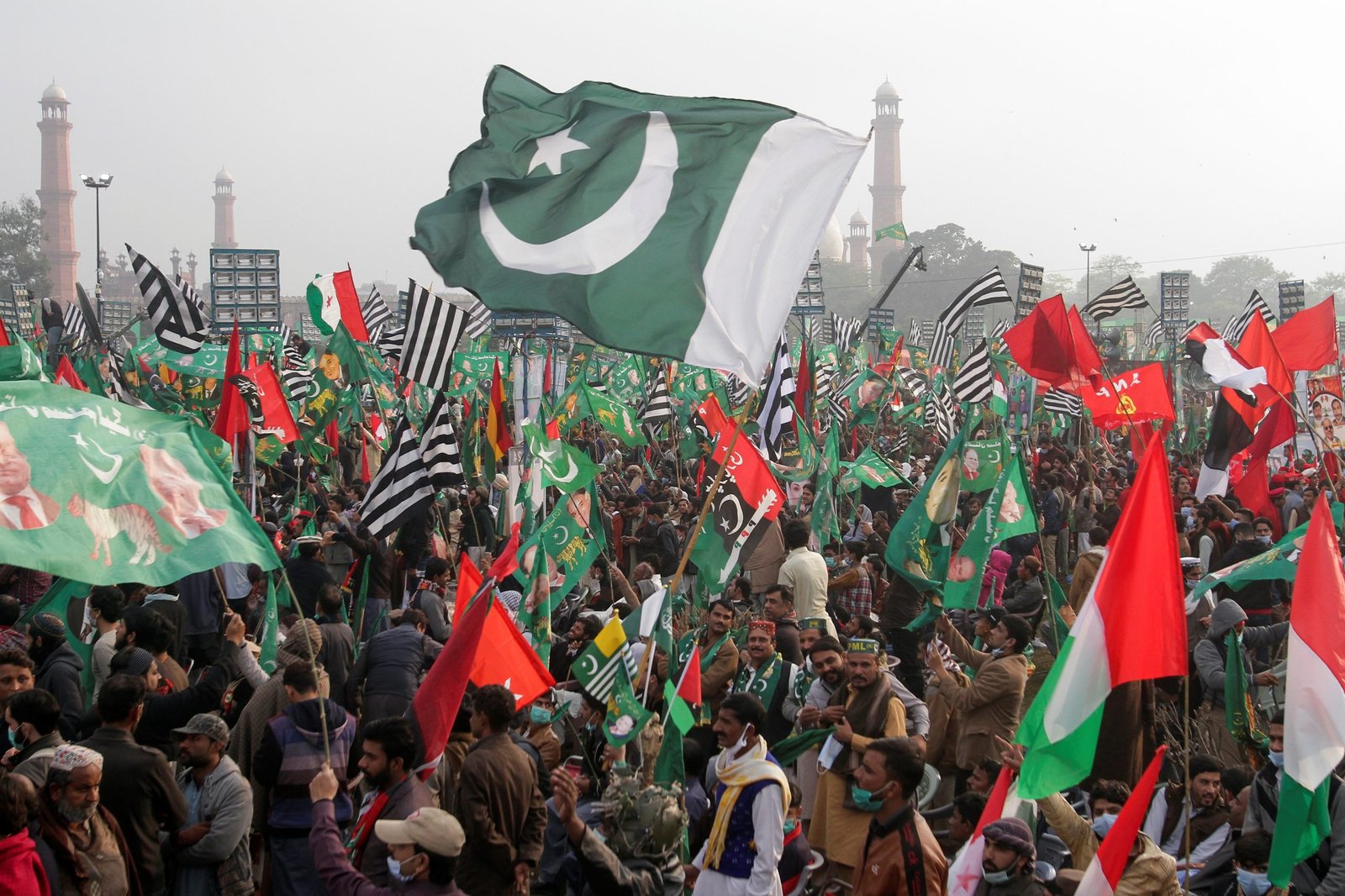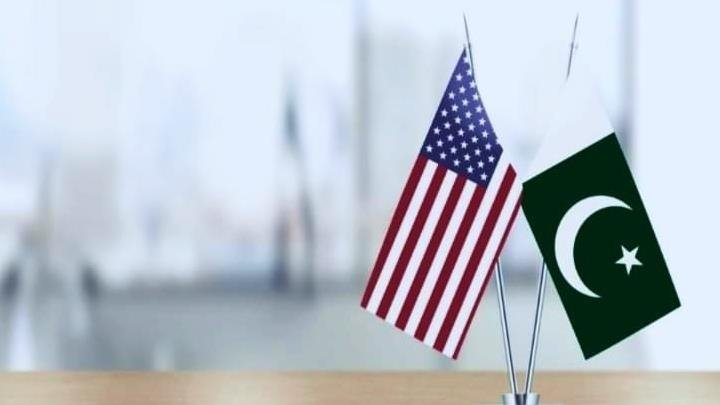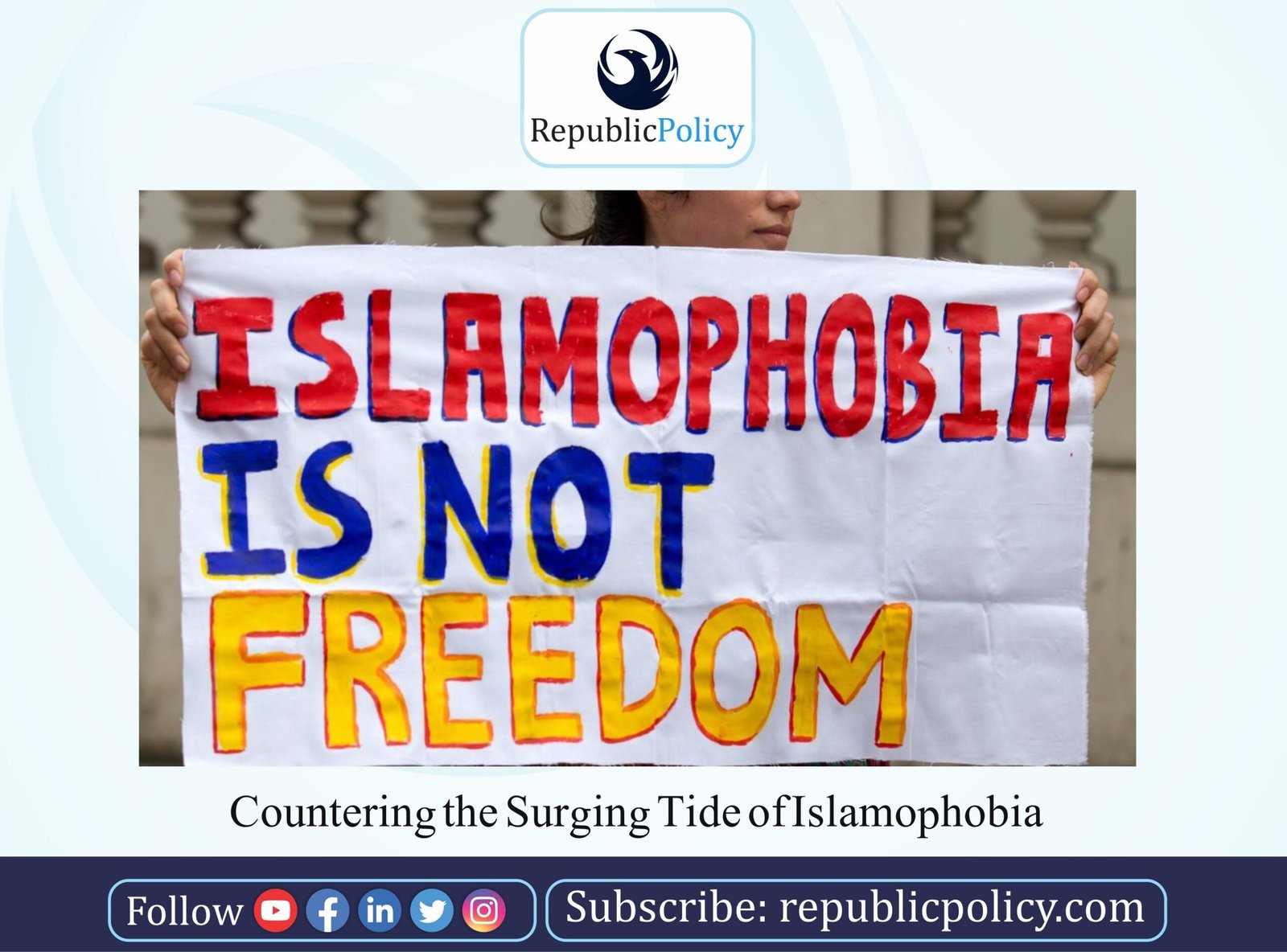By Sana Zara
In a significant diplomatic endeavor, Joe Biden orchestrated a high-profile meeting at Camp David last week, welcoming the leaders of South Korea and Japan. The primary aim was to steer these regional powerhouses towards closer economic collaboration and enhanced security ties. This maneuver is a key element of the current U.S. administration’s assertive stance against China’s expanding influence on the global stage. Yet, beneath this apparent unity, the memories of Japan’s oppressive colonial rule in Korea have long posed a challenge to fostering genuine camaraderie between these two staunch American allies. Moreover, this drive for closer coordination aligns with a resurgence of Japanese militarism, a development that carries historical echoes from the early 20th century.
Simultaneously, another driving force propels the United States to advocate for a formal diplomatic agreement between a repressive monarchy and a dwindling democracy in the Middle East. Saudi Arabia maintains relatively warm relations with China, and its de facto leader, Mohammed bin Salman (often referred to as MBS), is acutely aware that this partnership, along with the burgeoning rapport between Riyadh and Tehran brokered by Beijing, does not sit well with Washington. MBS recognizes the leverage this situation affords him on the international stage.
This multifaceted diplomatic dance is emblematic of the shifting global power dynamics and the strategies employed by key players to advance their interests. The interconnectedness of these developments underscores the complexities of modern geopolitics.
A History-Laden Path to Cooperation
The history of diplomatic relationships often casts long shadows, shaping contemporary alliances and rivalries. In the case of South Korea and Japan, the specter of Japan’s brutal colonial rule over Korea during the early 20th century has loomed large over their bilateral ties. The wounds inflicted during this period remain palpable in the collective memory of Koreans, making the task of fostering a close partnership with their former colonizers a delicate and challenging endeavor.
However, Joe Biden’s effort to bring these nations closer signals a pragmatic recognition of the pressing need for regional cooperation amid the growing influence of China. Both South Korea and Japan find themselves in a precarious neighborhood, with North Korea’s nuclear ambitions and China’s assertive territorial claims posing significant challenges. In this context, the United States is proactively encouraging these countries to set aside historical grievances and work together to bolster regional stability.
Japan’s Historical Complexities and Military Resurgence
The evolving dynamics in East Asia are further underscored by Japan’s complex historical backdrop. The nation’s imperial expansion and militarism during the early 20th century left deep scars across the region. Decades of pacifism, imposed by the post-World War II constitution, were seen as a commitment to never revisit that dark period.
However, in recent years, Japan has embarked on a significant shift in its defense posture, inching closer to a more assertive military role. This transformation has been facilitated by shifts in public opinion, growing concerns over North Korea’s missile capabilities, and the desire to exert a more proactive stance in the Indo-Pacific region to counterbalance China’s influence. While these developments may raise concerns among neighboring nations, the United States has largely endorsed Japan’s efforts, viewing them as a necessary element of regional stability in the face of mounting challenges.
Middle Eastern Diplomacy: Saudi Arabia’s Complex Role
Meanwhile, on a different front, the United States is pursuing a diplomatic deal between Saudi Arabia and a democracy facing internal challenges – a scenario rife with complexities. Saudi Arabia, led by the assertive and controversial figure of MBS, has been cultivating its ties with China, a move that has not escaped the attention of Washington.
The Middle East, a region historically characterized by intricate geopolitical rivalries and shifting alliances, is now grappling with the disruptive influence of external actors. China’s growing engagement with Saudi Arabia, as well as its efforts to broker improved relations between Riyadh and Tehran, demonstrates the extent to which global powers are influencing the region’s dynamics.
MBS, well aware of his country’s strategic importance, is leveraging these relationships to bolster his position and strengthen Saudi Arabia’s standing on the international stage. The implications of these maneuvers are far-reaching, affecting the Middle East’s geopolitical landscape and international diplomacy.
Navigating a Complex Geopolitical Landscape
The diplomatic overtures orchestrated by Joe Biden between South Korea and Japan, as well as the push for a diplomatic agreement involving Saudi Arabia, exemplify the intricate interplay of history, regional security concerns, and global power dynamics. These developments underscore the need for a nuanced and multifaceted approach to diplomacy in a world where traditional alliances are tested, historical grievances linger, and emerging powers assert their influence.
As nations navigate this complex geopolitical landscape, they must weigh the imperatives of regional stability, historical reconciliation, and the pursuit of their own national interests. In doing so, they contribute to the ongoing evolution of the global order, where the balance of power continues to shift, and the quest for diplomatic solutions remains ever paramount.
The geopolitical landscape in the Middle East is experiencing seismic shifts, and one of the most intriguing developments is the growing proximity between Saudi Arabia and Israel. These two nations, which have traditionally maintained a discreet distance, are inching closer to each other, with the United States playing a pivotal role in facilitating this rapprochement.
Saudi Arabia, a longstanding American ally, has been increasingly assertive in its regional policies. This newfound assertiveness includes hints of diversifying its sources of military imports beyond the United States, with China and Russia looming as potential alternatives. These subtle indications have not gone unnoticed, and they underscore Saudi Arabia’s pursuit of a more independent foreign policy, even if it means distancing itself from its traditional protector.
On the other side of the equation, Israel, another staunch American ally, has been navigating complex terrain. It is seeking a formal diplomatic agreement with Saudi Arabia, a monarchy characterized by repression and a diminishing democracy. This endeavor is laden with complexities and carries implications for regional stability and global politics.
The proposed conditions for this potential deal include a mutual defense pact, a civilian nuclear plan involving uranium enrichment, and Israeli gestures towards the Palestinians. These gestures are framed as concessions but are seen by many as preserving the possibility of a two-state solution, a notion that has grown increasingly elusive over the years.
The evolving relationship between Saudi Arabia and Israel is not without its critics. Many traditional allies of Israel in the United States have expressed reservations about the Israeli government’s attempts to exert control over the judiciary. Some have even suggested that American aid to Israel should be curtailed in response. A notable open letter from more than 750 Israeli intellectuals to the American Jewish community calls for an end to support for what they perceive as apartheid policies.
One key challenge for the United States in fostering a Saudi-Israeli partnership lies in the compartmentalization of issues. The judiciary’s future and the Israeli occupation of Palestinian territories are often treated as separate matters. While there have been mass protests in Israel defending its democracy against perceived threats, these demonstrations have largely overlooked the ongoing issue of ethnic displacement in Palestinian territories. Israeli courts, although at times restraining government actions, are viewed by some as complicit in the long-standing oppression of Palestinians, dating back to the Nakba, which has paralleled the horror of the Shoah (Holocaust).
The Nakba and the Shoah, both terms meaning “catastrophe,” reflect the profound historical and contemporary dimensions of suffering. The Shoah, one of the most significant crimes against humanity, concluded in 1945. Conversely, the Nakba remains an ongoing tragedy, with little indication that the current Israeli regime is inclined to address it, given its commitment to subterfuge-based annexation of the West Bank. Interestingly, this contentious issue does not appear to be a prerequisite for a diplomatic agreement with Saudi Arabia.

Check out our monthly English and Urdu magazines on Homepage
The broader Arab world’s stance on Palestinian issues has been mixed. While Palestinian matters have been politically leveraged by many Arab leaders, the Palestinian Authority itself has faced challenges in maintaining its credibility. It is perceived by some as a puppet entity that garners little allegiance among Palestinians. For example, when the Abraham Accords were announced, the United Arab Emirates (UAE) claimed they had prevented the Netanyahu regime from annexing the West Bank. However, the reality seems to have moved in the opposite direction, with transgressions escalating.
Despite these complexities, Saudi Arabia’s Crown Prince, Mohammed bin Salman (MBS), appears undeterred. MBS has embarked on an ambitious mission to transform Saudi Arabia into a sporting powerhouse, with endeavors ranging from golf tournaments to football leagues. Superficial changes in entertainment and cultural offerings, such as desert raves and Western music concerts, have been accompanied by stringent measures against dissent on social media, resulting in lengthy prison sentences for even mild criticism.
Recent revelations from Human Rights Watch detailing Saudi massacres of Ethiopian refugees on the Yemeni border paint a stark picture of the regime’s brutality. The evidence suggests mass killings of innocent civilians, including women and children, through gunfire. While European nations have demonstrated inhumanity toward immigrants, including turning a blind eye to mass drownings in the Mediterranean, none have resorted to such extreme violence.
It’s conceivable that elements within Israel and some border-control proponents in the United States may view Saudi Arabia’s approach with envious admiration. This evidences a disturbing trend towards endorsing or even emulating ruthless policies in the name of security and control.
Notably, Saudi Arabia and Israel have been quietly cooperating on various levels for several years, with the collaboration intensifying in recent times. While numerous obstacles remain on the path to a formal Israeli-Saudi alliance, if it does materialize, it is likely to be a carefully crafted partnership rather than a rushed or forced union. This evolving relationship signifies a pivotal shift in the Middle East’s geopolitical landscape, reflecting the intricate dynamics of power, interests, and alliances in the modern world.
In conclusion, the evolving dynamics of Saudi-Israel relations reflect the complex geopolitical landscape of the Middle East. While the prospect of closer ties between these two nations carries the potential for regional transformation, it also raises important questions about human rights, democracy, and diplomatic challenges. As we observe these developments, it is essential to consider the historical context and the broader implications for the Middle East. While hurdles remain on the path to a full-fledged partnership, the world watches with curiosity and, at times, concern, as Saudi Arabia and Israel navigate this intricate diplomatic journey.
Subscribe our website for latest updates:
https://republicpolicy.com/shop/
Read More

















